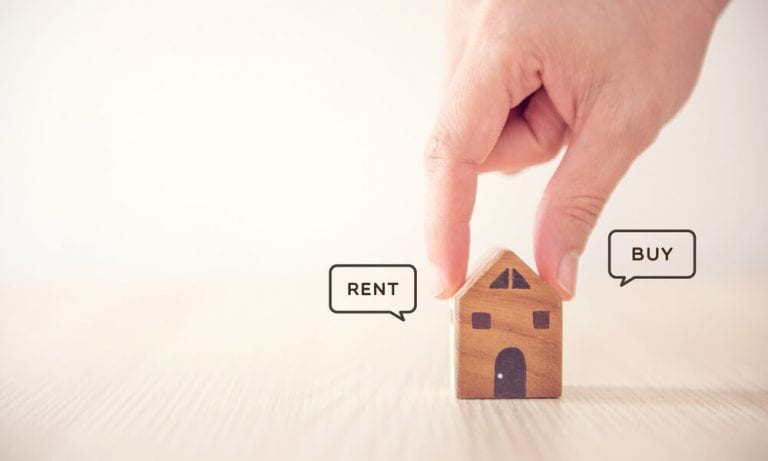Should Military Families Rent or Buy a Home?
Home » Military Money »
For families on the move, deciding whether to rent or buy a home is a critical choice, from a financial and lifestyle perspective. For members of the military, it’s a choice they confront much more frequently than the general population.
In fact, according to a new poll conducted on behalf of financial services provider USAA, 70 percent of active duty military members have moved in the past two years, compared to 35 percent of the general public. That statistic is especially significant during this time of year when many soldiers and their families are receiving ‘permanent change of station’ (or PCS) orders to relocate.
As many as one-third of the military force change addresses annually according to the Department of Defense, which means millions soldiers and their families will once again begin planning to relocate.
Whether to rent or buy always is a difficult decision. But the current economic climate and housing market crisis, together with active conflicts overseas triggering deployments and re-deployments further complicate the issue.
Rent Vs. Buy – Tips for Military Families on the Move
1. Consider your orders: What is the length of your current orders? The decision-making process can start and, possibly, end here. The longer you expect to remain in a single location, the more sense it makes to buy a home. Indeed, many financial planners recommend against purchasing a home unless you plan to stay in the home for several years.
2. Moving before the lease is up: Time is a factor for renters as well. Military renters can be at the mercy of leasing agreements if orders take you elsewhere in the middle of the contract. Make sure the lease agreement includes a “military clause” that allows the agreement to be terminated should orders necessitate a move before the lease is up.
3. Research. No computer? No Problem: Everyone knows how useful the Internet can be when researching homes, but what if you’re on the go? Tools like USAA’s Home Circle can allow you to research homes and rentals on your mobile device or personal computer, and even get instant insurance quotes for a prospective property.
4. Can you afford to buy?: The total cost of owning a home goes beyond the purchase price. As a home owner, you’ll also be responsible for property taxes, maintenance and repairs, and homeowner’s insurance. These costs can vary greatly depending on the location, size, and general condition of the home. Overall housing costs shouldn’t exceed 30 percent of your pay excluding any military housing allowances.
5. Protect Your Belongings: A good homeowner’s insurance policy covers damage to the structure as well as many of the possessions that dwell inside. But what if you rent? The average renter has $20,000 worth of stuff. The landlord’s policy doesn’t reimburse the tenant for any of that if something happens. Invest in a good renter’s insurance policy to cover your stuff in case it’s stolen, damaged or destroyed due to fire, severe weather and other causes.
By USAA

